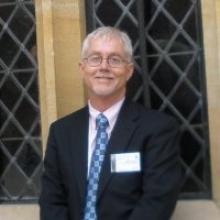Plenary Session - Prof. Charles Beem (University of North Carolina)

Bona Sforza was Poland’s most powerful early modern consort. Resilience was in her blood; her mother Isabella of Naples, Duchess of Milan, overcame adversity to provide for only surviving daughter, to whom she provided a model of autonomous female rule as Duchess of Bari in her own right. Marrying a king thirty years her senior, Bona came to Poland with the express purpose of helping her husband rule, which was not an acceptable practice for Polish queens. But Bona persevered, understanding the traditional means to enjoy a successful Queenship by creating a companionate marriage and bearing her children. At the same time, she refused to play a purely domestic role, becoming a substantial landowner as well as agricultural reformer. While the Polish nobility were offended by the scope of her queenship, Bona nonetheless bequeathed a wide-ranging model of Queenship for subsequent Queens of Poland to follow.
Charles Beem is currently professor of history at the University of North Carolina, Pembroke, where he teaches courses in World Civilizations, Early Modern Europe, all aspects of British History, and the History of Sexuality. He is also the coordinator for the Minor in British Studies. His publications include The Lioness Roared: The Problems of Female Rule in English History (2006), The Royal Minorities of Medieval and Early Modern England (2008) The Foreign Relations of Elizabeth I (2011), The Name of a Queen: William Fleetwood’s Itinerarium ad Windsor (2013), The Man Behind the Queen: Male Consorts in History (2014), and Queenship in Early Modern Europe (2019). He is also, with Carole Levin, the editor of the book series “Queenship and Power” for publishers Palgrave Macmillan. Beem was the recipient of an excellence in teaching award in 2006 and 2015, two Folger Shakespeare Library fellowships in 2007 and 2011, and the Adolph Dial Award for Scholarship and Creativity in 2008. In 2012 he was elected a fellow of the Royal Historical Society. His professional website is www.tudorhistorian.com.
